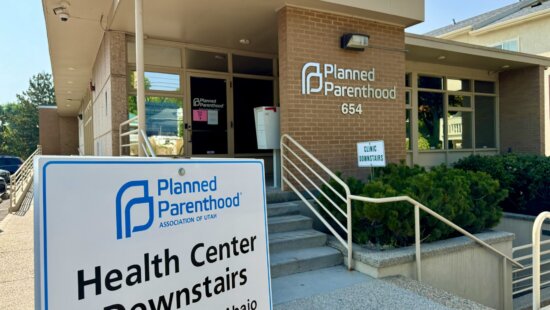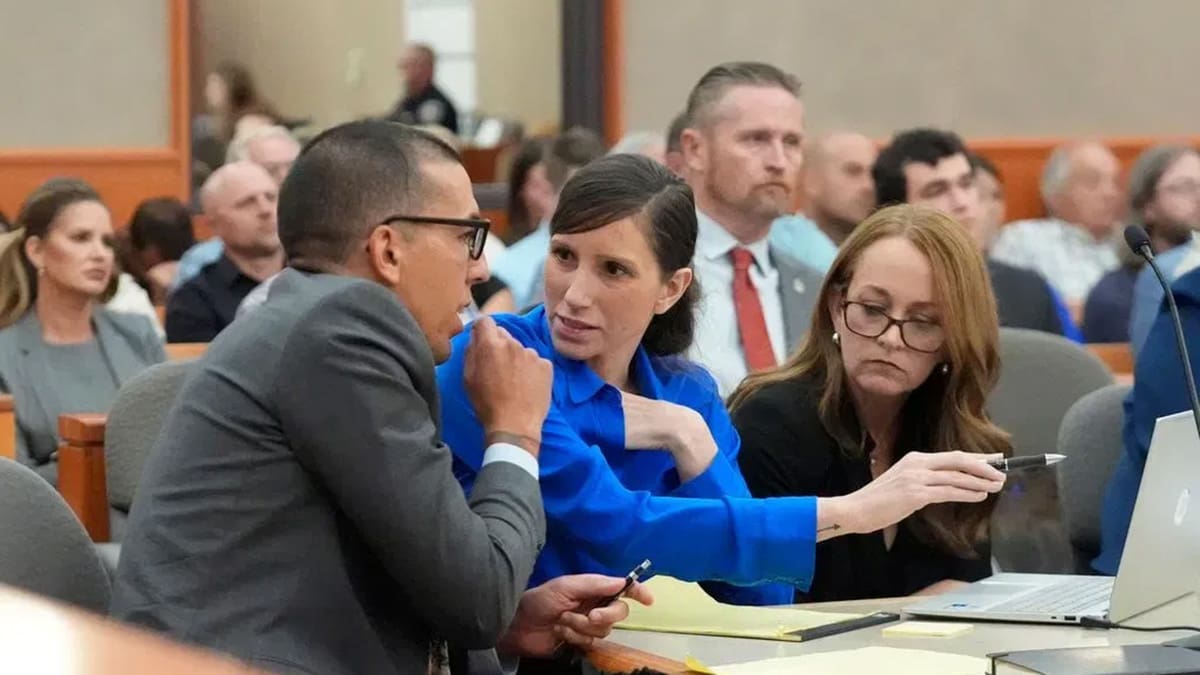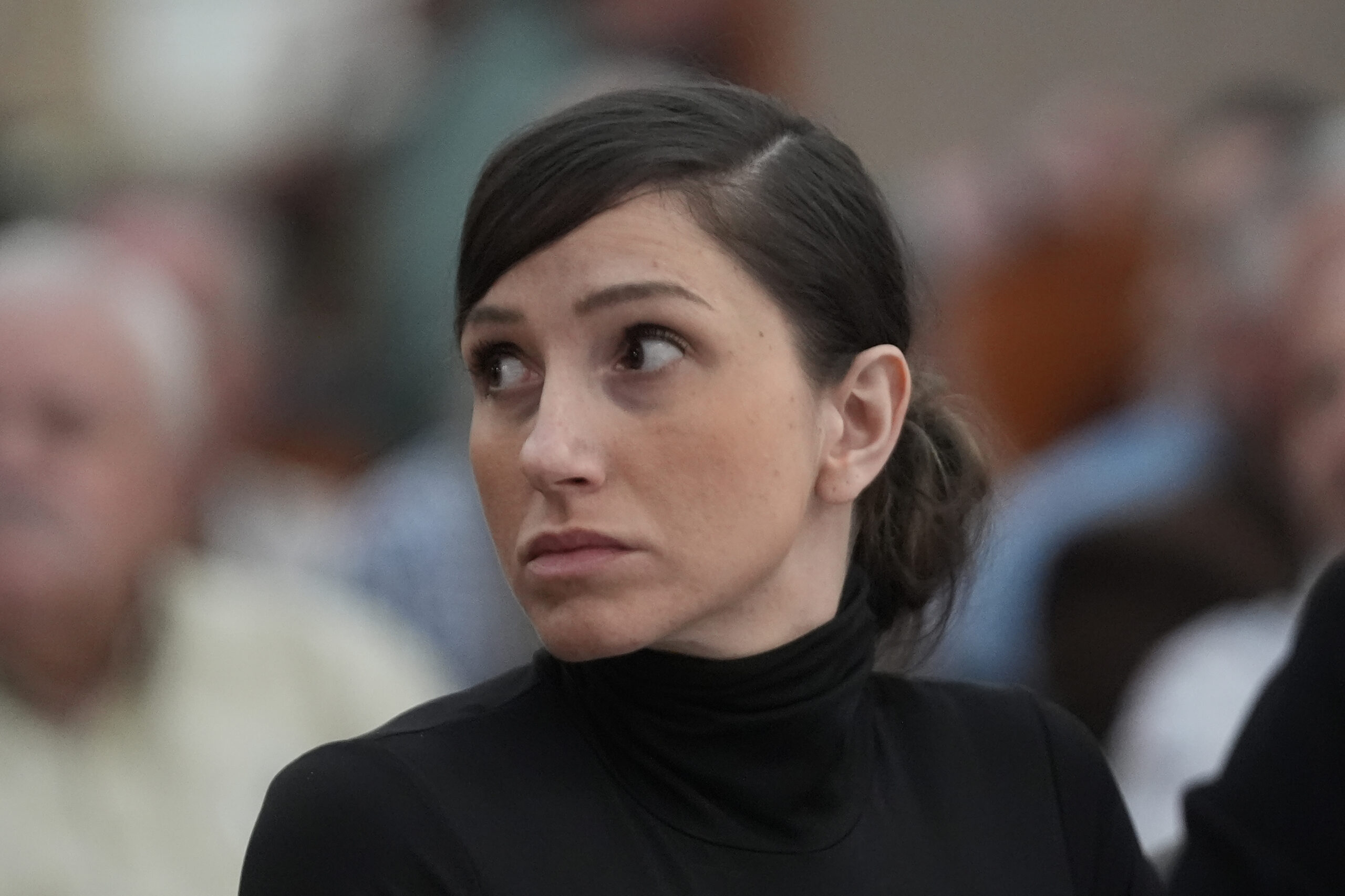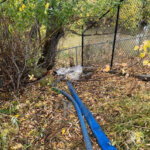Health
Utah Supreme Court upholds pause on trigger law that would ban almost all abortions
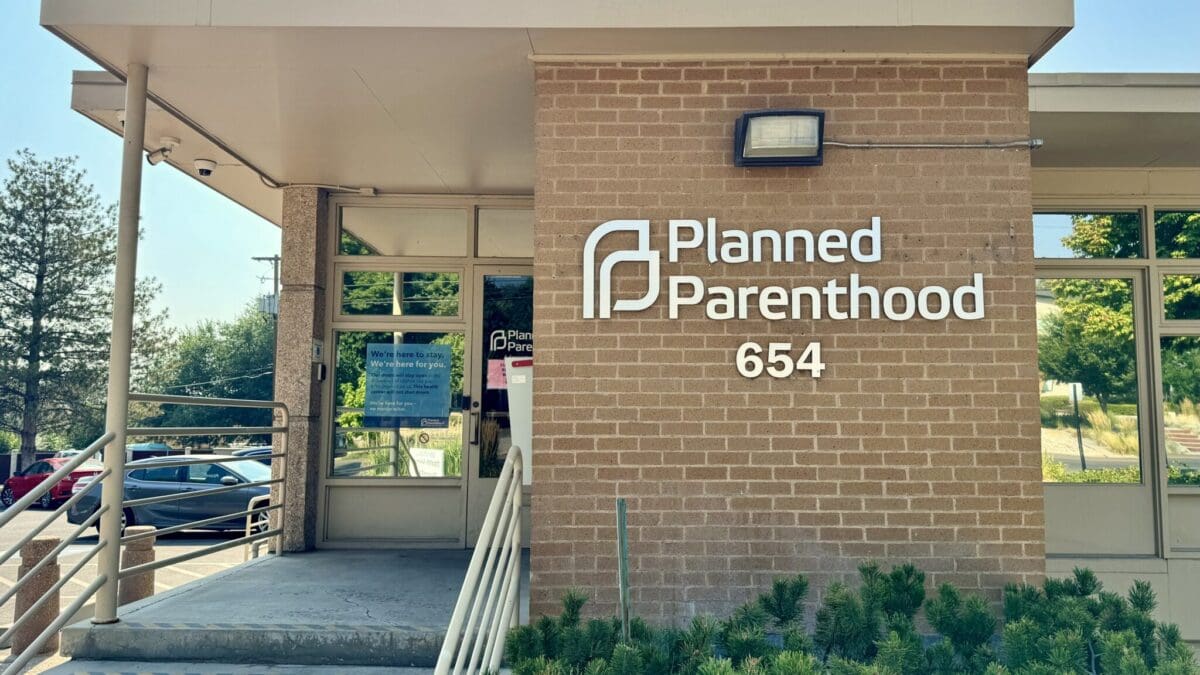
A Planned Parenthood clinic in Salt Lake City is pictured on Wednesday, July 31, 2024. Photo: McKenzie Romero // Utah News Dispatch
District court did not err when it granted an injunction blocking enforcement of 2020 near-total abortion ban, Supreme Court rules. Planned Parenthood’s lawsuit will continue to play out while lawmakers look to restrict current 18-week ban, possibly to 6 weeks.
By: Katie McKellar, Utah News Dispatch
The Utah Supreme Court issued a ruling Thursday morning that upheld an injunction blocking enforcement of a 2020 trigger law that bans nearly all abortions across the state.
The 4-1 opinion from the Utah Supreme Court — which is comprised of three women and two men — affirmed a district court’s decision to enjoin the enforcement of the ban while Planned Parenthood of Utah and the state continue to litigate the constitutionality of the law.
Associate Chief Justice John Pearce authored the opinion, in which Justice Paige Petersen, Justice Diana Hagen and Justice Jill Pohlman joined.
“The district court did not err when it concluded that (Planned Parenthood of Utah) had raised serious issues about the constitutionality of SB174,” Pearce wrote in the prevailing opinion. “The court did not abuse its discretion when it concluded that (Planned Parenthood of Utah) and its patients would be irreparably harmed without the injunction.”
“Likewise,” Pearce continues, “the court did not abuse its discretion when it concluded that the balance of harms tipped in favor of enjoining SB174 while parties litigate its constitutionality. Nor did the court act outside the bounds of its discretion when it concluded that the injunction would not be adverse to the public interest.”
Chief Justice Matthew Durrant, however, filed a dissenting opinion. He argued that Planned Parenthood lacked legal standing to request an injunction.
“While (Planned Parenthood) asserts that the enforcement of SB174 would cause it to suffer various economic and reputational injuries, none of the arguments in its complaint or request for a preliminary injunction rely on those injuries,” Durrant wrote in his dissenting opinion. (Planned Parenthood’s) arguments instead are premised on the harms SB174’s enforcement would cause to the rights and interests of PPAU’s patients. As the majority agrees, PPAU must show that it has standing to assert these claims on its patients’ behalf.”
While the district court concluded that Planned Parenthood “had standing to assert those claims” based on legal precedent establishing public interest, “the majority now affirms that decision on different grounds, holding that (Planned Parenthood) may assert these claims based on the concept of third-party standing … I respectfully disagree with both conclusions,” Durrant wrote.
Durrant also argued he would reject Planned Parenthood’s legal standing for an injunction for another reason — and he warned the court is risking a “dangerous expansion” of legal standing.
“The difficulties that (Planned Parenthood’s) patients face are genuine, but they are not that different from those faced by many others who wish to challenge a law’s constitutionality,” he wrote. “Appellate litigation is undoubtedly too expensive, inconvenient, and time-consuming. But if these factors alone are enough to justify the exercise of third-party standing, then we risk a dangerous expansion of that doctrine.”
The ruling immediately reverberated across the state. Democrats and Planned Parenthood representatives celebrated, while Republicans and anti-abortion advocates expressed disappointment.
At least one Republican lawmaker said he will ask the Legislature for a special session to restrict Utah’s current 18-week abortion law while court battles over the trigger law continue to play out.
‘Deep disappointment’ from Utah’s Republican leaders
The reaction from the Utah Supreme Court’s ruling was swift and scathing. It may also prompt Utah’s Republican-supermajority Legislature to hold a special session to further restrict Utah’s existing ban on abortions after 18 weeks of gestation.
Hours after the court issued its ruling, the sponsor of the trigger law, Sen. Dan McCay, R-Riverton, called the decision “extremely disappointing. He said letting the injunction stand will mean “the unborn, the innocent will lose their lives today because of these actions.”
He also told reporters he plans to request a special legislative session by the end of the year to further restrict Utah’s current 18-week ban while the courts continue to hash out the more sweeping trigger law that would ban almost all abortions, with some exceptions for rape, incest and certain health issues.
“We’re going to look at making it much shorter,” he said, pointing to other states like Georgia, South Carolina, Florida and Iowa that ban abortions past about six weeks of gestation.
Other Republican leaders, including Utah Gov. Spencer Cox, Senate President Stuart Adams, and House Speaker Mike Schultz, expressed deep disappointment in the ruling. They did not immediately say whether they would indeed support McCay’s proposal or agree to call a special session.
“Over the next few weeks, we will discuss options with Sen. McCay, lawmakers and the governor to determine the next steps,” Adams, R-Layton, said in a statement to Utah News Dispatch.
In response to questions about McCay’s request for a special session, Cox said in a statement to the Dispatch, “We are still reviewing the opinion and will be having discussions with the attorney general’s office and legislative leadership regarding every possible option to determine the best way to proceed to protect our most vulnerable.”
While “disappointed,” the governor said in a separate prepared statement, “We are hopeful that this decision will be a temporary setback and the laws will take effect following resolution of the case.” He also expressed gratitude for the state’s current 18-week ban and added, “Regardless of this outcome, our administration will continue to fight for all Utahns, including the unborn.”
— Utah Gov. Spencer J. Cox (@GovCox) August 1, 2024
Adams and Schultz, in a joint statement, went a step further and accused the Utah Supreme Court of “undermining the constitutional authority of the Legislature” to enact laws.
It’s the second ruling from the Utah Supreme Court in less than a month that Utah’s Republican legislative leaders have criticized. On July 10, the court handed a major win to plaintiffs in an anti-gerrymandering lawsuit — a decision that the Senate president and House speaker said “made a new law” for voter initiative power, “creating chaos and striking at the very heart of our republic.” Asked if legislators planned to act in any way to respond to the court’s ruling in the redistricting case, Adams told Utah News Dispatch they’d evaluate.
House Majority Whip Karianne Lisonbee, R-Clearfield, who has sponsored more recent anti-abortion legislative efforts, said it’s “deeply unfortunate that Utah’s strong pro-life law continues to be tied up in litigation more than two years after the Dobbs decision, resulting in deaths of thousands of unborn babies in our state.”
“We are consulting with our legal counsel on next steps for the litigation and are confident that we will ultimately prevail on the merits of the case.”
Rep. Jordan Teuscher, R-South Jordan, wrote in a post on X that he was “deeply appalled” by the decision, and he went as far as to deem the Utah Supreme Court an “activist court.”
“This ruling stretches the bounds of judicial interpretation, disregarding the historical context and intent of our state’s framers,” Teuscher wrote. “For over a century, Utah has upheld laws that protect the sanctity of life and reflect our community’s values. The framers of the Utah Constitution never intended to enshrine a right to abortion, and this decision undermines the clear historical stance our state has taken on this issue.”
Teuscher said that since the injunction was put in place, thousands of “pre-born babies have been terminated.”
“This court has perpetuated this travesty, allowing innocent lives to be lost,” he continued. “We must stand firm in preserving the rights of the unborn. Utah’s history has consistently aimed to protect life, and it is disheartening to see this legacy disregarded by an activist court stretching to reach its opinion.”
Democrats, Planned Parenthood celebrate
Meanwhile, Democrats and Planned Parenthood representatives celebrated the decision, characterizing it as a win for women’s rights and reproductive health and one that acted as a check to Utah’s Republican-controlled Legislature.
However, they also acknowledged the battle over access to abortion in Utah is not over.
“Today’s decision means that our patients can continue to come to us, their trusted health care providers, to access abortion and other essential reproductive services right here in Utah,” Kathryn Boyd, president and CEO of Planned Parenthood of Utah, said in a prepared statement. “While we celebrate this win, we know the fight is not over.”
Boyd told reporters Thursday afternoon the ruling was “one step” as the issue makes its way through the courts. While she said she can’t predict how the case will ultimately play out, “we will continue to litigate this issue.”
“We will continue to fight,” she said. “Honestly, this is a battle. I don’t want to say (lawmakers) are waging war against the people of this state, but in a sense, they are. They are restricting people’s ability to live their lives the way they want to live their lives.”
Boyd said the ruling indicates the court considers it a “serious question whether the near-total abortion ban violates Utahns’ rights in the constitution. That includes the right to bodily autonomy, bodily integrity, the right to care for one’s family, and the right to gender equality.”
“While the court did not decide at this procedural stage whether the ban violates those rights, it did reject the state’s argument that the Utah Constitution must allow Utah to ban abortion,” she said. In effect, she said the ruling “highlighted the harms the near-total abortion ban would cause to Utahns who seek abortion and to those medical providers who care for them.”
Camila Vega, staff attorney for Planned Parenthood, said she disagreed with Durrant’s dissenting opinion and the court “majority got it right.”
“That is what all of the case law in Utah tells us; it is what the U.S. Supreme Court case law tells us,” Vega said. “This is not something that should be up for debate.”
Boyd also emphasized that Planned Parenthood of Utah is a health care provider providing “essential services to the people of Utah all across this state” for reproductive health, not just abortions.
Boyd said Planned Parenthood of Utah “looks forward to this unconstitutional law being permanently struck down so that we can continue to provide quality, affordable health care to Utahns, free from political interference.”
Utah House and Senate Democrats issued statements applauding the court’s decision.
“By preventing the immediate enforcement of SB174, the court has recognized the potential irreparable harm that this law could inflict on individuals seeking reproductive healthcare,” Senate Democrats said in a prepared statement. “We believe that healthcare decisions should be made by individuals in consultation with their healthcare providers, free from undue government interference. As this case moves forward, we hope that the lower courts will thoroughly consider the constitutional issues at stake and continue to protect the rights and well-being of Utahns.”
House Democrats said the ruling “ensures that essential healthcare services remain accessible.”
“Across the country, we have seen the devastating impact of aggressive abortion bans on women. Today, Utah avoids joining those statistics,” House Democrats said. “As the lower courts review this law, we urge our colleagues and the judiciary to continue considering the harmful impact this ban would have on the health and well-being of Utahns.”
Where does Utah’s abortion law stand now?
The ruling in Planned Parenthood of Utah’s lawsuit with the state of Utah is a major development in litigation that’s gone on for more than four years as the state’s Republican supermajority Legislature has sought to restrict access to abortion and “protect the unborn.” Their effort was emboldened by the U.S. Supreme Court’s overturning of Roe v. Wade in 2022, which removed the federal constitutional right to an abortion.
In hopes that Roe v. Wade would eventually be overturned, the 2020 Utah Legislature passed SB174, known as a “trigger law” that banned nearly all abortions at any stage of pregnancy except in certain circumstances. Those include cases of rape or incest, if the mother’s health is seriously at risk, or if two maternal-fetal medicine physicians agree the fetus has a lethal birth defect or a severe brain abnormality.
When Roe v. Wade was indeed overturned in 2022, Utah’s trigger ban then became law — but only briefly before it was put on hold by a legal challenge from Planned Parenthood, which successfully sought an injunction from a district court.
Since then, abortions have remained legal in Utah up to 18 weeks of most pregnancies under a 2019 law. That status will remain while the lawsuit over the near-total trigger abortion ban winds its way through the courts.
What if the Utah Legislature restricts 18-week law to 6 weeks?
In response to that possibility, Boyd told reporters she’s “not surprised,” but Planned Parenthood will “wait for anything new to develop as we continue to litigate our case. Should something new develop, we’ll be right there; we’ll be ready to go.”
Asked whether additional legal challenges to any new laws would be wrapped into the current case over the trigger law, Vega said that would depend on what lawmakers do. “We’ll keep all of our tools in our tool kit, but we have to see what that looks like if it does come to pass,” she said.
If the Utah Legislature were to restrict Utah’s current 18-week law to six weeks, Boyd said it would further harm Utah women seeking abortions.
“That limits the ability for a woman to seek the care that she desires. … We know that abortion bans cause harm,” she said, pointing to studies released since the Dobbs decision that indicates increased maternal and infant mortality rates.
A six-week ban would likely restrict abortions for women before many “even realize that they’re pregnant,” Boyd said, or could lead them to feeling “rushed to make a decision about how to proceed.” It could also force more Utahns to travel out of the state to seek an abortion — or further restrict people who may travel to Utah for abortion care.
Regardless of what the Utah Legislature decides to do, Boyd said, “We’re not going to back down.”
“If they want to pass a new ban, if they want to create more hardship for the people of Utah, we’re going to be here to help fight for the people who can’t,” she said. “We’re committed to health equity. We’ll be bold and unapologetic, and we will make sure that everyone has, to the best of our ability, the power to control their own bodies, their lives and their futures.”
Utah abortion statistics
Here are some facts about how often abortions take place in Utah, according to the most recent state data published by the Utah Department of Health and Human Services:
- In 2021, the total number of abortions performed in Utah was 3,127 and the number of abortions performed for Utah residents was 2,978.
- The highest ratio of abortions per 1,000 births in 2021 was in Salt Lake County, with a ratio of 109.7 abortions per 1,000 births. The lowest reported was in the state’s southwest health district, with a ratio of 11.6 per 1,000 births.
- In 2021 the most common reasons for their abortion that patients reported were socio-economic (1,473), elective (925), or contraception failure (447). These three total 2,845 of the 2,976 reasons for women living in Utah to have an abortion.
- Almost half of abortions sought by Utah residents in 2021 were conducted between five and six weeks of gestation (1,310), while 834 were conducted between seven and eight weeks of gestation.
Contributing: Alixel Cabrera
















